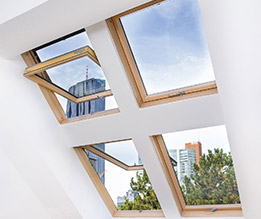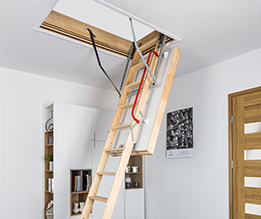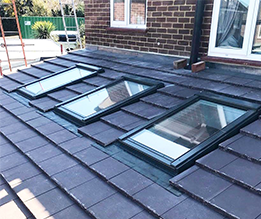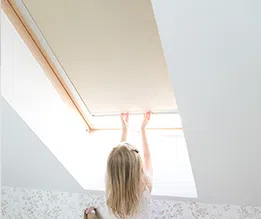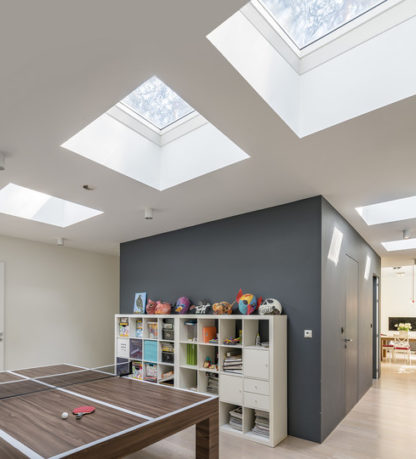Self-build insurance: A Guide to Insurance for Self-Builders
Insurance isn’t the most exciting part of building your own home, but it’s certainly one of the most important. Self-build insurance can protect you and your property, as well as your budget, from unexpected complications during your self-build project including injury, damage, loss, theft, and more. If you’re trying to keep costs down or ensure the build goes as swiftly as possible, the right insurance policy is essential. But insurance as comprehensive as self-build insurance can be complicated, and you may have a lot of questions. For example, is there site insurance for self-builders? Do you need public liability insurance for a self-build? And how much is this all going to cost? In this guide, we’ll take you through the basics of self-build insurance to help you plan your project with ease. We’ll cover:

How much does self-build insurance cost?
Self-build insurance is calculated based on your proposed construction costs, which you’ll put together as part of your planning. The amount you’ll have to pay also depends on the type of cover you choose to apply for as part of your policy, as well as where you get it from. The good news is that self-build insurance can include coverage for every stage of your build, from the building site to your legal fees. So, you’ll only have to make one payment instead of trying to keep tabs on individual policies.
It may surprise you to learn that you’ll need self-build insurance as soon as you purchase your plot. This is because self-build insurance includes public liability, which will ensure that anyone on your land at any time is protected from theft, damage, or accidents (as well as anything in it), so it’s important to have it from the moment that land becomes yours. This can help negate any unexpected expenses that may occur before you even start planning.
When deciding where to get self-builders insurance from, you’ll likely browse some of the top lenders such as Aviva or Zurich, or you might use a comparison site to find the best deal. However, don’t just go straight to a high street broker — look for dedicated self-build insurance providers too. The cover they provide might be more accurate and relevant to your specific needs, and you may even find better rates.
Don’t builders have their own insurance?
If you’re hiring builders and tradespeople or sub-contracting to a building company, you may be asking yourself if you really need to organise self-build insurance. Won’t they have their own? The answer is probably, but you need it too. Professional insurances that contractors take out may have different policies that only cover the worker in terms of theft, accidents, or any damage they may cause, and not you or your property. Or, in a surprising number of cases, they may be operating without insurance at all. So, it’s always worthwhile to ensure you’re covered. You can also read our guide to finding reliable contractors for tips for ensuring your workforce is trustworthy.
What does self-build insurance cover?
There are several elements that make up a self-build insurance policy. At the core, there tends to be public liability and contract works, though there may be others such as employers’ liability and contractors all risk, depending on how you’re building your home. These will be most pertinent if you’re hiring sub-contractors to build your home for you.
The process is largely the same if you’re seeking self-build insurance for an extension or another renovation to your home rather than building a property from scratch, but it’s always worth asking your lender first. They may have a better policy available for less intensive projects like those.
Public liability insurance for self-build
In essence, public liability insurance covers you if you or your property are found responsible for injury to a member of the public, damage to their property, or accidental death. Public liability applies even before you start building (if someone gets injured on your land plot, for example) and continues throughout the course of the construction of your self-build. It will pay for your legal fees, plus any compensation, repair costs, and medical fees you’re ordered to pay, up to a specified amount.
Site insurance for self-builders
Self-build site insurance covers you in the event of injury, death, or damage to people and their property on the building site once construction starts, as well as any injury or damage outside of it that was directly caused by the building work. Like public liability, it will pay for your legal fees, plus any compensation, repair costs, and medical fees you’re ordered to pay, up to a specified amount.
Many self-build insurance providers will upgrade public liability to full site insurance once you start building, or you may seek this out separately depending on your circumstances.
Contract works
Contract works is the part of the policy that covers your self-build and any repairs and replacements you might need while it’s being built. Damage to your property during the course of the build can be costly to fix and cause delays to the project, making it even more expensive overall. So, being covered by contract works can give you peace of mind that any snags can be sorted quickly as well as within your budget. Contract works will end as soon as you finish construction, so you won’t be covered for any defects in the building work that you discover afterwards.
Self-build warranty insurance
Structural warranties are optional, but highly recommended. Self-build insurance ends once construction is complete, meaning you’re no longer covered if there’s any damage to your property once the project is signed off. A structural warranty would mean your home is covered in the years following the build, so you won’t have to fork out for any expensive works immediately after funding your self-build. This includes any damage as a result of poor design, workmanship, or materials.
For this reason alone, it’s always worth considering structural warranty as an add-on to your self-build insurance, but doubly so if you plan to sell your self-build. This is because a warranty transfers once you sell, and it will give potential buyers added peace of mind that they won’t be lumbered with a defective home, so you’ll be able to negotiate a better price.
Self-build home insurance
Once construction is finished and your self-build project is completed, your lender will likely offer to convert your self-builders insurance into regular home insurance. This is the typical insurance you’d expect as a homeowner, which may cover your property, furniture, and possessions. It’s important to note that self-build insurance doesn’t cover personal possessions, so you’ll need to either convert to a home insurance policy (or apply for a new one) before you move in.
As with any financial product, it’s advisable to shop around first before you accept their offer. As your self-build is brand new, you may find it advantageous to look into new build home insurance. This applies to properties less than two years old that haven’t been lived in before, and is often cheaper than standard home insurance. Be sure to bring this up with your broker to ensure you’re getting the best deal for your circumstances.
Self-build insurance may seem like an expensive add-on, but the right policy can protect you at every stage of your project and potentially save you thousands in the long run. We know insurance can be complicated, particularly a comprehensive policy like self-build insurance. That’s why the tips in this guide can help you make sure you understand them all and get the right protection for your self-build.
At RW4Y, we have a host of helpful guides that can answer all your questions including how much does it cost to build a house. No matter what stage you’re at in your self-build project, we’re confident we can help with our expert advice and high-quality roof windows, flashing, and roofing membranes. Efficient and reliable, they’re the perfect option for any home renovation — contact us on 0333 600 9090 to find out more!
